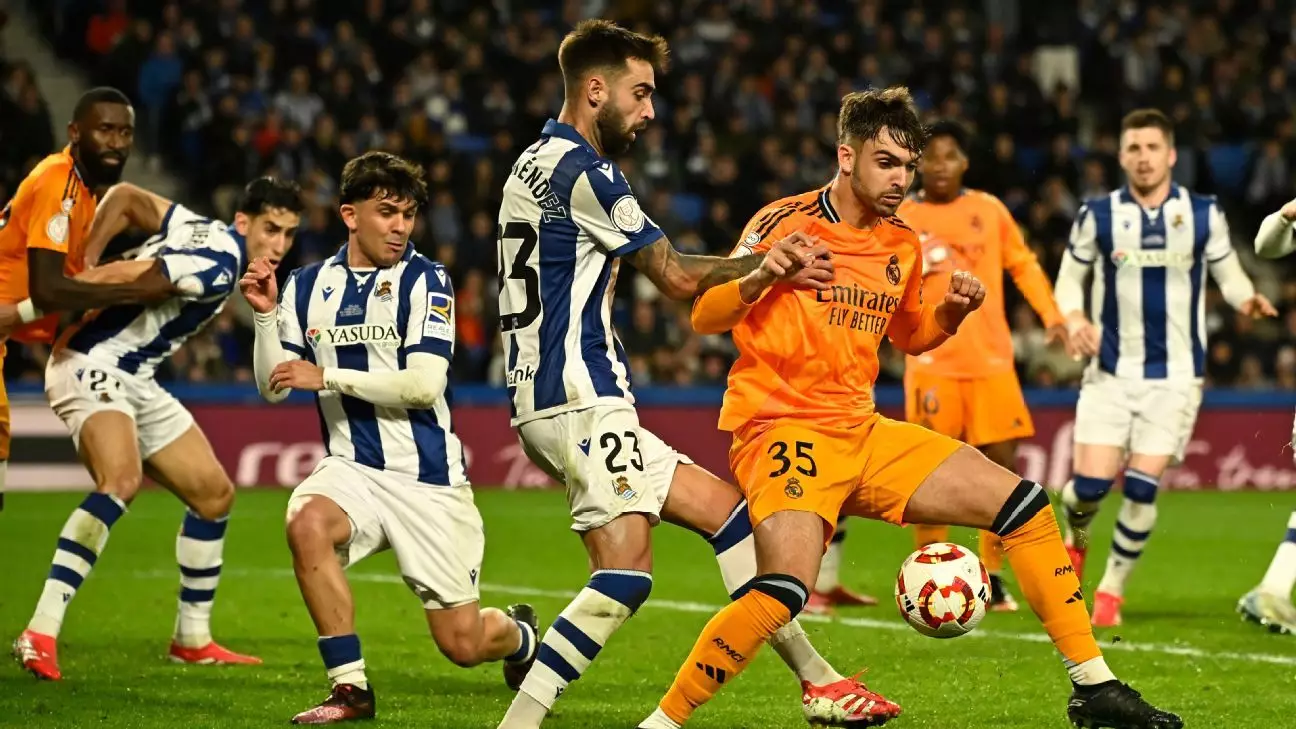In an unfortunate turn of events at the Copa del Rey, Real Madrid’s match against Real Sociedad faced an unexpected suspension due to crowd chants directed at defender Raúl Asencio. The incident unfolded just before halftime at the Reale Arena when Madrid captain Vinícius Júnior brought the attention of the referee, José María Sánchez Martínez, to the shocking phrase, “Asencio, die.” This prompted the activation of Spain’s anti-hate protocol, aimed at curbing racism and intolerance within sports. The announcement shown on the stadium’s big screen reiterated the inappropriateness of such behavior, calling for respect among fans, players, and teams alike.
The Alarming Background
Asencio’s recent controversies have significantly impacted the atmosphere surrounding him, particularly concerning a pending investigation into his alleged involvement in a scandal related to the distribution of an explicit video involving minors. The investigation stems from an incident dating back to June 2023 and involves three other former Real Madrid academy players. Such background complicates the player’s situation, making the chants more harmful not merely as an insult but as a reminder of his ongoing legal troubles. The chants are indicative of a toxic environment that often plagues sports and reveal deeper societal issues regarding accountability and respect.
Madrid’s coach, Carlo Ancelotti, acted swiftly by substituting Asencio at halftime, recognizing the psychological toll the chants may take on him. Ancelotti’s decision, informed by the player’s evident distress and his precarious yellow card situation, highlights the delicate balance that exists between player welfare and competitive strategy. “Nobody likes a stadium to sing ‘die’ at them,” Ancelotti noted in his post-match analysis, underscoring the deeply personal impact such hostile atmospheres can have. His immediate response reflects a broader understanding among coaches and management about their responsibility to protect their players not only on the pitch but off it as well.
In the wake of the incident, both Real Sociedad’s captain Mikel Oyarzabal and coach Imanol Alguacil were vocal in their condemnation of the crowd’s behavior. Oyarzabal articulated a clear message against such hateful expressions, suggesting that alternative, constructive methods exist for addressing grievances. Alguacil’s assurance that such behaviors are not welcomed in football, irrespective of rivalries, is crucial in cultivating a sports culture that uplifts players rather than diminishes them.
The suspension of the match due to hateful chants paints a chilling picture of the challenges facing sports today. As the game progresses, the incident serves as a reminder of the urgent need for ongoing dialogue and strategies to combat discrimination and foster respect among fans. For players like Asencio, situations like this go beyond sporting outcomes—they encapsulate the very essence of shared humanity. It becomes imperative that the sporting community not only condemns such actions but actively cultivates an environment that values sportsmanship and integrity above all. The journey toward an inclusive and respectful sporting culture is fraught with challenges, but it is also filled with opportunities for growth and reflection.


Leave a Reply